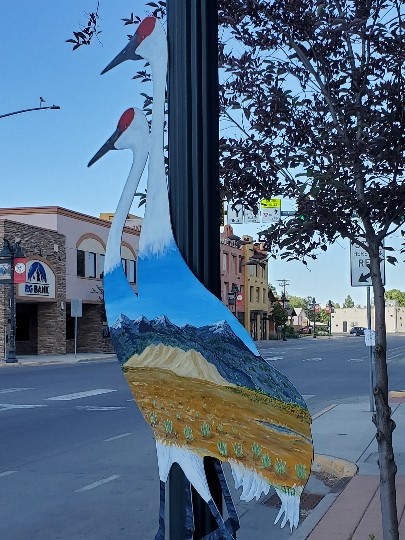It is a quiet Monday morning and I stand in the middle of the San Luis Valley miles from a cup of coffee. Rural Colorado can seem like a different world from the busyness of my day. There are no buses to catch for there are no buses. Time has its own pace in places where nature engulfs the size of a human. The vastness of the landscape keeps communities deeply rooted in their place. Collaboration is not just a model in an isolated town, it is how one gets through harsh winters and long summer days, and a pandemic. The economy is tough in rural Colorado. Working the land pays little and resources from the Front Range are too few and seem designed to shut out little rural places. The pandemic relief has required complex forms and strings that seem to tangle more than bind. Poverty is very real when food is expensive, and choices are few.
A tiny being in a huge landscape, I think of belonging and what it means to be from a rural place. There is a solidarity in living far from the niceties of a city. There is grit and determination and a rugged sense of self. There is also a deep sense of interconnectedness and belonging. Those of us who live in the vast area beyond the lights are fiercely proud of the community that defines us. It may all look the same to those passing through, and it might look like a sweet place to retire, but we know the names of those who came before and the seasons that direct our attention. We belong to this place and all the messy dramas and disagreements fade when we meet at the Oasis, or at K & J’s or Milagros. This is the place we belong with its poverty and potholes and the myriad of little things we do without. We have formed this place and it continues to form us.
Equity in these spaces must be locally grown and defined. Systems that hold inequities staunchly entrenched come from long ago when land taken from indigenous people was turned into Land Grants which bestowed the fertile land upon a few connected families. Homesteaders and miners raced to stake a claim and those who walked the hills were banished to reserves. Towns grew with workers, and each created themselves with hope and fierce independence. We strive to make our towns better for our kids. There may be better models and there may be nicer words, but we know our neighbors and our relationships will always be what leads us forward.
Rural communities are proud and welcome dialogue with respect and patience. So many new initiatives have come and withered on the vine so we are patient to see if there is a willingness to listen, to include our ideas, and to develop relationships that will be lasting. The Civic Canopy holds these concepts as we learn together with rural communities. Relationship building is vital and a willingness to work through conflicts. We approach the work with curiosity and humility. The Canopy hopes to achieve sustainability through trust and relationships that are more relational and less transactional. Together leadership will emerge and power shifts when people have time to gather the way they naturally gather while sharing the deep roots of community connection.


